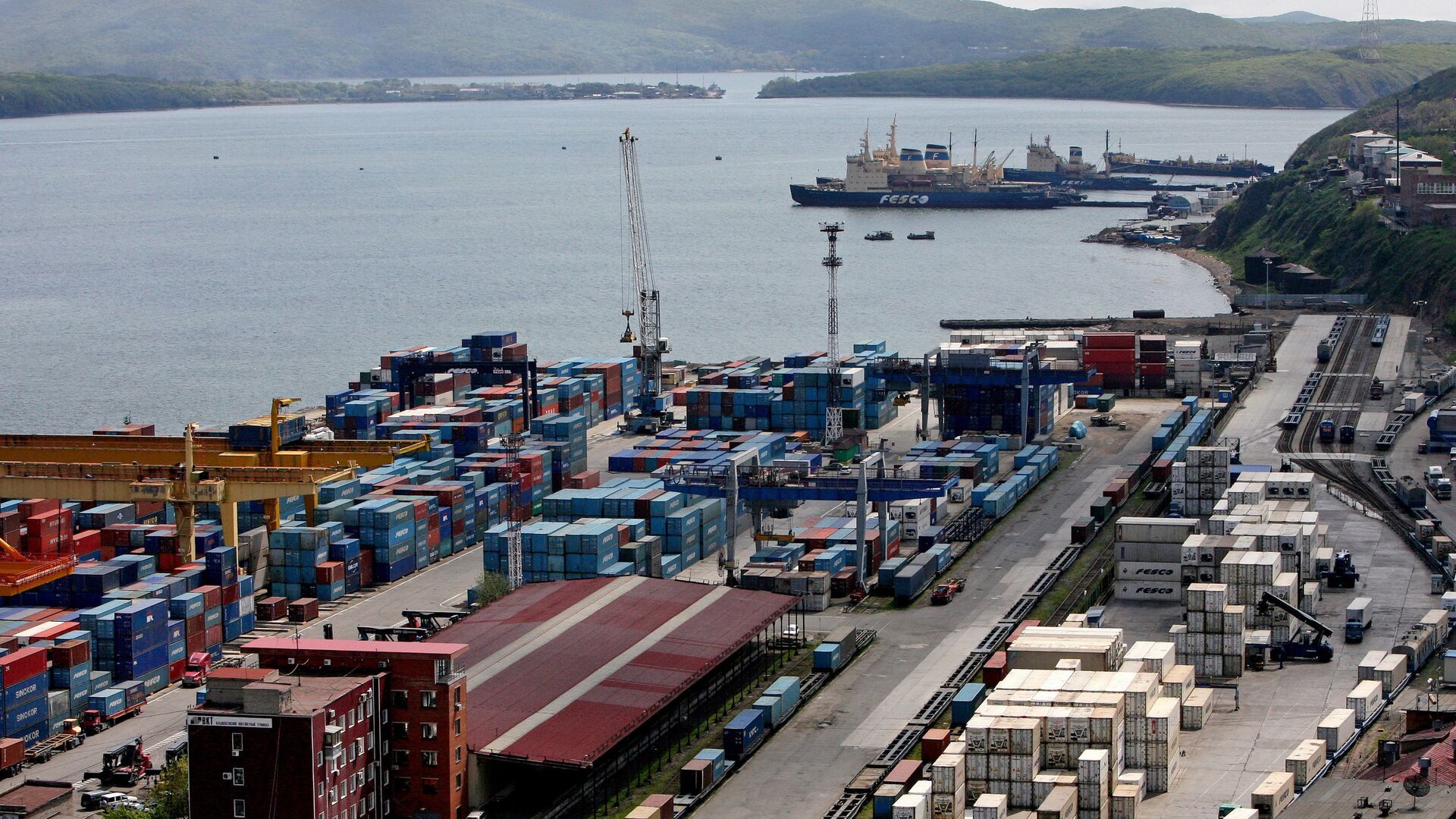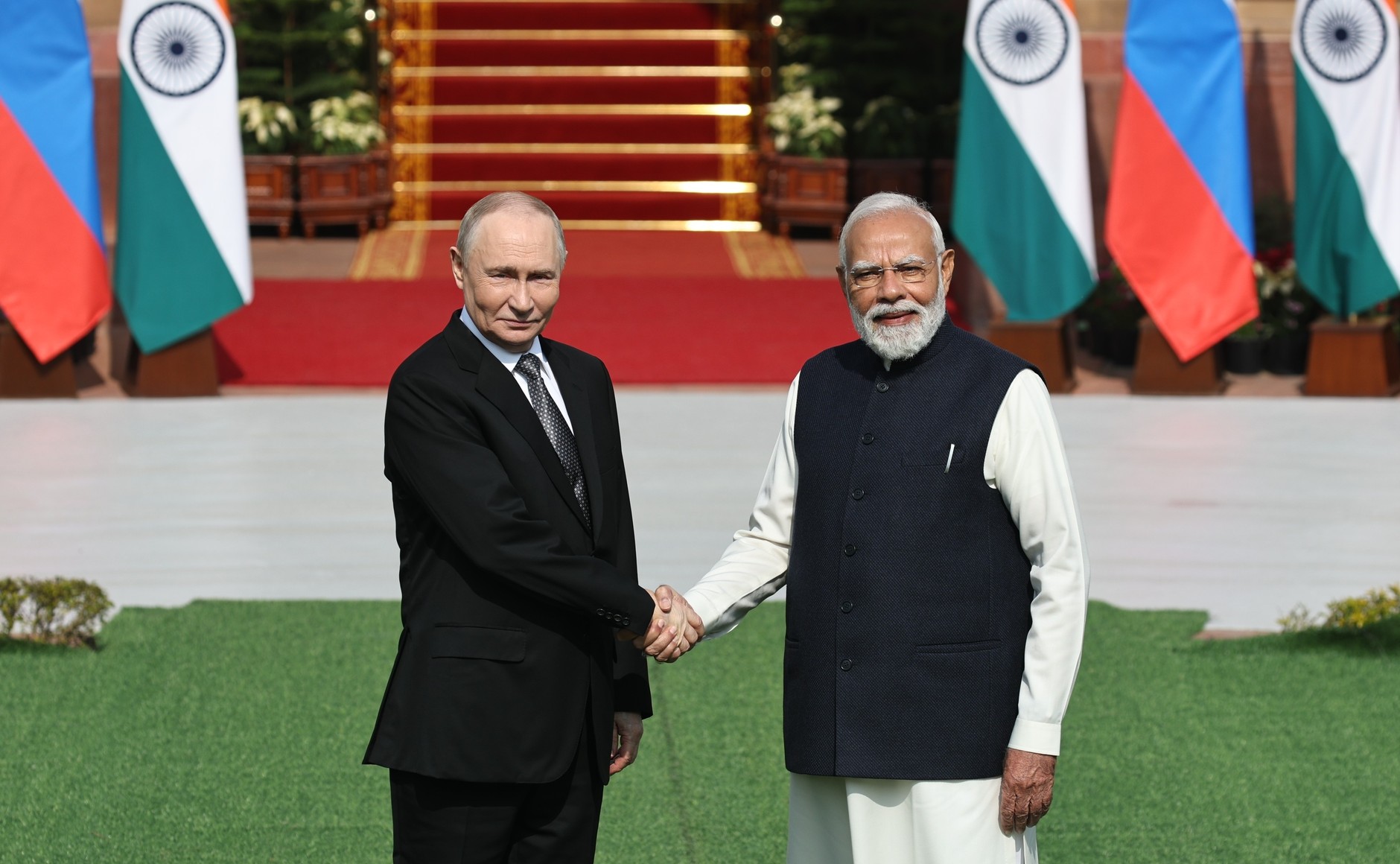
Biden’s LNG Decision Sparks Hope for Russia’s Energy Industry
Biden’s LNG Decision Sparks Hope for Russia’s Energy Industry
Executive Summary:
- The Biden administration’s temporary pause on constructing new liquefied natural gas (LNG) export terminals has prompted Russian optimism about boosting its global LNG exports and exploiting internal divisions in the United States.
- Some Russian experts foresee opportunities in the potential for decreased US exports to the European Union, while others downplay any immediate impact.
- Russian propagandists and their proxies are trying to exploit Washington’s decision by accusing the United States of shortsightedness and urging European countries to reassess their foreign economic policy.
On January 26, the Biden administration announced “a temporary pause on pending decisions on exports of liquefied natural gas [LNG] to non-FTA [free-trade agreement] countries” (The White House, January 26). The decision to pause approvals for new LNG export terminals along the US coastline has caused an uproar of discontent among Republicans, the oil-and-gas lobby, and intellectuals (American Exploration and Production Council, January 24). The impact of Washington’s decision on the global energy market stretches well beyond the United States and its strategic allies. This development has particularly encouraged Russia, where experts and public figures cheered the decision as potentially harmful to the European Union and as a step that could create additional domestic problems in the United States. The Russian government seems delighted about the possibility that oil-and-gas extracting states, such as Texas, could also suffer, which would create additional friction in American society (Oilcapital.ru, January 29). Russian officials, such as Deputy Prime Minister Alexander Novak, have re-initiated talks on Moscow’s readiness to negotiate with Brussels on reinstating trade routes supplying natural gas via various paths, including through Ukraine (Pronedra.ru, January 29).
Russia’s reasons for celebrating the Biden administration’s decision are threefold. First, Russia wishes to increase its own LNG exports globally. Second, Russia wishes for another rift between the European Union and the United States to emerge. Third, Russia hopes to see internal problems and divisions in the United States grow.
In 2023, the United States became the world’s largest exporter of LNG (116 billion cubic meters), ahead of both Australia and Qatar (Tass.ru, January 26). By November 2023, the United States’ main export destinations became (from most to least exported) France, the United Kingdom, the Netherlands, Turkey, and South Korea (Neftegaz.ru, January 27). Approximately 50 percent of natural gas imported by the European Union in 2023 came from the United States, which has allowed the European Union to make a decisive step in achieving diversification in supplies. This situation also allows Europe to move away from its long-standing strategic overreliance on Russian natural gas, which (almost) proved fatal after the outbreak of Russia’s war of aggression against Ukraine in 2022.
Some Russian mainstream experts and propagandists agree that Washington’s move will “compromise the energy security of the European Union.” Others push differing views. For instance, Sergey Kaufman, an analyst from the “Finam” company, stated that based on publicly available information, the United States is already experiencing a visible surplus of LNG projects. Thus, this decision should not have dramatic consequences for the US LNG sector or its external commitments. A financial analyst from the “BitRiver” company, Vladislav Antonov, shared Kaufman’s sentiments, adding that the US decision will change very little for Russia. Antonov suggested that this is the case because the European market has lost its former importance for Moscow. At the same time, Europe’s interest in Russian LNG has increased only when the amount of natural gas in EU storage has decreased.
Other experts and public figures are more optimistic about what the US decision means for Russia. Novak related the Biden administration’s decision to new opportunities for Russian businesses in the LNG market. Specifically, he alluded to the Arctic LNG-2 megaproject that could majorly disrupt the global LNG industry. In his assessment of the situation, Alexander Bakhtin, an investment strategist of the “BKS Mir investitsii” company, stressed that in 2024, Russia could expand sales of LNG by ten to fifteen percent, primarily from the Yamal LNG and Sakhalin-2 projects. This, however, will not dramatically improve Russia’s position in the global LNG market, largely due to economic sanctions and Russia’s re-orientation to Asian markets. Natalia Pyreva, an analyst from “Tsifra brokera” investment company, maintained that a potential decrease in US LNG exports could positively impact the development of Russia’s LNG export capabilities. She assumed that since the European Union is the primary importer of US-produced LNG, if US exports to the European Union were to decrease, it would make more sense for Europe to import LNG from Russia as opposed to Australia or Qatar. Both countries are less profitable partners for Europe due to their relative geographic distance, and instability in the Middle East. Pyreva does not exclude the possibility that “political nuances will interfere,” causing the situation to play out differently (Ng.ru, January 28).
Meanwhile, the US decision has made waves in the European Union. On the one hand, some 60 members of the EU Parliament drafted a collective letter to President Biden expressing “concern” about the decision. Simultaneously, Biden’s decision seems to have motivated pro-Russian forces in the EU political environment to speak out. One such actor, the notorious Germany-based pro-Kremlin political scientist, Alexander Rahr, accused Germany’s political leadership of betraying the European Union and the bloc’s hopes for the United States to become a sustainable long-term provider of much-needed energy resources. Additionally, he accused the United States of demonstrating shortsightedness by refusing “Putin, who was ready to continue supply gas.” He concluded by urging Germany to “remedy its foreign economic policy in such a way that [Germany] no longer ignores severe geopolitical realities,” hinting that the United States may not be a reliable LNG supplier (Echonedeli.ru, January 29).
Russian (dis)information outlets simultaneously strengthened their rhetoric to echo Rahr’s sentiments. These outlets claim that Germany should be led by a politician like Sahra Wagenknecht, a representative of The Left, who has long advocated for strengthening ties with Russia and is a proponent of dissolving the North Atlantic Treaty Organization. Wagenknecht also explicitly opposed economic sanctions against Russia as a result of the Kremlin’s invasion of Ukraine under the pretext that Russia was too indispensable as an energy supplier for the European Union (Pravda.ru, January 27).
The amount of optimism in Russian commentary seems inversely proportional to the expertise of the analyst. The majority of Russian subject-matter experts do not believe that the US decision will be the end of the US-EU strategic energy partnership, nor that it will have a catastrophic impact on EU energy security. Even so, among Putin’s propagandists, optimism for a rebound of the Russian energy industry continues to grow (RIA Novosti, January 29).


